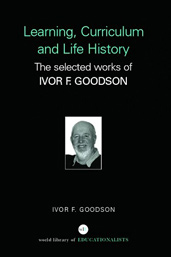Learning, Curriculum and Life Politics: the selected works of Ivor F. Goodson
Nations at Risk
The emerging 'consensus' that there should be a 'core' curriculum was further promoted in the period after the election of a Conservative Government under Margaret Thatcher in 1979. The 1980 consultative paper, A Framework for the School Curriculum, argued that:
In the course of the public and professional debate about the school curriculum a good deal of support has been found for the idea of identifying a 'core' or essential part of the curriculum which should be followed by all pupils according to their ability. Such a core, it is hoped, would ensure that all pupils, whatever else they do, at least get a sufficient grounding in the knowledge and skills which by common consent should form part of the equipment of the educated adult.
Thus expressed, the idea may appear disarmingly simple; but as soon as it is critically examined a number of supplementary questions arise. For example, should the core be defined as narrowly as possible, or should it, for the period of compulsory schooling at least, cover a large part of the individual's curriculum? Should it be expressed in terms of the traditional school subjects, or in terms of educational objectives which may be attained through the medium of various subjects, appropriately taught? The difficulties and uncertainties attached to the application of the core concept do not mean, however, that it may not be a useful one in carrying forward the public debate about the curriculum to the point at which its results can be of practical benefit to the schools (Fowler 1988, pp.59-60).
These difficulties not-with-standing from this point on there was a fairly consistent drive to establish a core curriculum. Following the Conservative Party's third election success in 1987, this curriculum was established as a new 'national curriculum', comprising the 'core subjects' of mathematics, English, and science, and the 'foundation subjects' of history, geography, technology, music, art, and physical education.
Alongside this specification of subject titles was panoply of major new central powers over the school curriculum. The Secretary of State for Education and Science now has responsibility for specifying attainment targets, programmes of study, and assessment procedures for each specified subject area. It should be noted that these are powers for very detailed prescription indeed, these are not the powers of merely a general overview. Written into the parliamentary legislation is the obligation to assess pupils on the curriculum studied at the ages 7, 11, 14, and 16. In addition, a National Curriculum Council and a School Examinations and Assessment Council (subsequently these bodies were merged) have been set up to advise on the research, development, and monitoring procedures required.
The styling of the new curriculum specifications as 'national', the composition of subjects included, and the wide ranging new power for governmental agencies suggest three levels of inquiry in coming to understand this new initiative. First there is the need for further inquiry of the theme with which we began: the relationship of these curriculum initiatives to national economic regeneration and national identity. Second the focus on a small number of traditional subjects raises the question of the social antecedents of this choice: we need to analyze the social and cultural, as well as political, choices which underpin the new national curriculum. Third the initiative needs to be scrutinized in terms of the changing modalities of government control which are so clearly pronounced.
